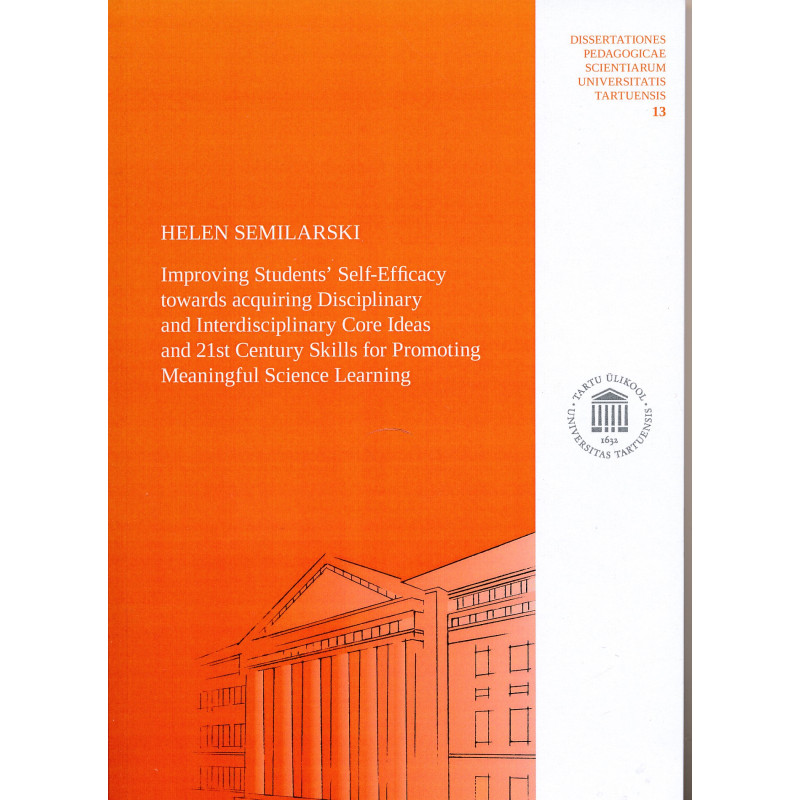



Full title: Improving students' self-efficacy towards acquiring disciplinary and interdisciplinary core ideas and 21st century skills for promoting meaningful science learning
Tartu : University of Tartu Press, 2022
218 pages : illustrated
ISBN: 9789916270110
Dissertationes pedagogicae scientiarum Universitatis Tartuensis ; 13
Softcover new book
Doctoral theses defended at the University of Tartu, summary in Estonian
Student meaningful learning through science education has recent much attention in recent years. Meaningful learning is seen as the process of interpreting situations in light of previous knowledge and experiences (Odden & Russ, 2019). In this way, emphasis is placed on promoting students’ independence, identifying their own world view and stimulating their willingness to succeed in life through developing self-efficacy. Perceived self-efficacy is taken to be an indicator of a person’s belief in the ability to succeed in a specific situation, or accomplishment of a task, based on acquired situational connections (Bandura, 1986). Where the perception is weak, or self-efficacy not established, this can be expected to lead to concerns in science learning, for example students acquisition of fragmented science knowledge. Learning in science education, increasing focuses on seeking ways to integrate different science subjects [Life science (biology), Earth science (geography), chemistry and physics] to support student meaningful conceptualisation about the world. This lack of meaningful learning has been exacerbated by the concern of emphasising students gaining of fragmental knowledge in learning through science topics. It has also led to situations where students cannot see the ‘bigger picture’ (complete overview of learned knowledge) of the learning and lack coherence of progression towards overarching disciplinary core ideas (the fundamental ideas that are necessary for conceptualising science). Also, it is important to develop interdisciplinary core ideas, which are transferrable across science fields e.g. models and systems, and which are much broader in scope and are not solely rooted in science. The aim of this study was to determine the effectiveness of student-led expansion of disciplinary core idea (DCI) and interdisciplinary core idea (ICI) maps which can contribute to promote students’ promotion of meaningful science learning. Findings showed that Students have high perceived self-efficacy towards acquiring Life Science and Earth Science related disciplinary core ideas. The findings also indicated that students had a lower self-efficacy towards acquiring more abstract disciplinary core ideas related to Chemistry and Physics. Students have high perceived self-efficacy towards acquiring interdisciplinary core ideas, such as Models and Systems. Student perceived self-efficacy was found to be lower in relation to the problem-solving skills and critical thinking. A concern was raised since many challenging problems required strong problem-solving skills and critical thinking, which were also important to different careers. The essential characteristics for to promote student meaningful learning are: disciplinary and interdisciplinary core ideas, 21st century skills, dimensions of knowledge, knowledge integration (through mind mapping and concept mapping), and DCI and ICI maps. Students’ ability to expand DCI and ICI maps was seen as effective and supported their learning in Life Science, Earth Science, and Models and Systems. Students seemed to be able to recall what they had learned in these areas more easily.